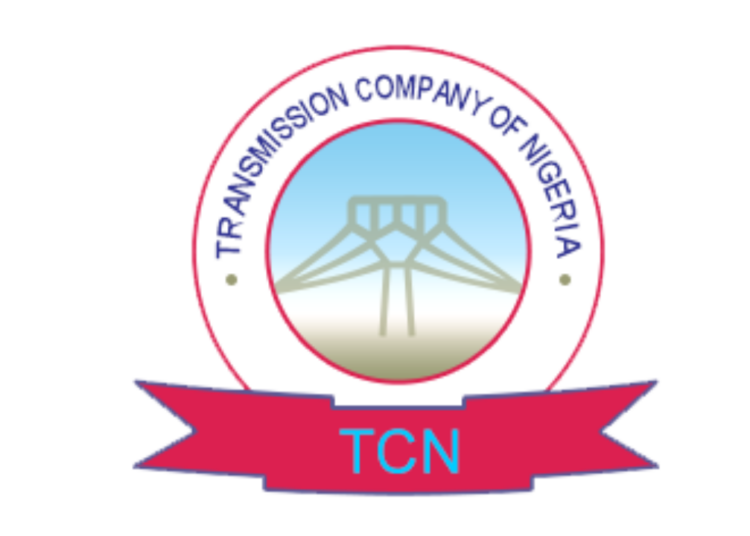The Transmission Company of Nigeria (TCN) has threatened to sanction erring electricity market participants, having given them notices and time to comply with the market rules.
Recall that the TCN disconnected the Aba Power Limited, from the national grid last week over an alleged controversial N869.21 million debt.
The commission said it is becoming very difficult for TCN and other service providers in the electricity supply industry to function properly because of poor revenue receipt.
TCN’s Market Operator (MO), Mr Edmund Eje, disclosed that from January 2020 to date, market operators’ outstanding invoice stands at N80 billion.
Eje, in a statement issued in Abuja yesterday, warned that one of the fallouts of the sanctions would be the partial or complete disconnection of defaulters from their point of connection to the grid.
He explained that TCN operates on self-sustenance basis, and thus depends mainly on its Internally Generated Revenue (IGR) even for its overheads and most of its major projects.
According to him, the revenue of TCN is not crafted on cost-reflective tariff basis like the other participants in NESI, reason being that the federal government uses TCN to subsidise the NESI operations. Eje further said the non-cost-reflective tariff which the regulator allowed TCN to recover is not being paid in full by the market participants, leading to funding deficit for the TCN, supposedly, the fulcrum of the NESI.
“If TCN fails as a result of paucity of fund, no Market Participant would be functional and the NESI would crumble,” the market operator warned.
Giving a background, Eje said the Transitional Electricity Market commenced in February, 2015 with, among other preconditions for the participants, posting of adequate Bank Guarantees and paying their monthly invoices 100per cent.
“By December 2016, the MO was on 15 per cent collection and catering for overheads became a herculean task. By December, 2019, the outstanding on MO’s services invoice stood at N443 billion with interest.
“This figure may have been traded for Discos credit on Tariff-Gap, reason, the Service Providers belong to the Federal Government. From January 2020 to date, the MO invoice outstanding stands at N80 billion. It is becoming very difficult for TCN and other service providers to function properly because of poor revenue receipt.”
Eje said that given the above, the MO commenced revenue-drive since last year but the defaulters have been adamant to the various advances and notices for them to cure their defaults.
According to him, revenue drive procedure in NESI is well streamlined and no arbitrary process is adapted. The process is very well known to the participants except those who pretend to be ignorant of the Market Participation Agreement they voluntarily signed before entering the Market.
He said the major default here is failure to put up a valid Bank Guarantee (BG) and also failing to clear their outstanding debts with MO.
Explaining further, Eje said that on 16th of February, 2022, all defaulters, including APL Electric ( 23rd Nov. 2022) were notified to put up their BG or validate as the case may be;
“On 2nd March, 2022, all defaulters, including APL Electric (7th Dec.2022) were served with “Notice of Event of Default”.
“ On 9th of May 2022, all defaulters , including APL Electric (14th of May,2022) were served with “Notice of Intent to issue Suspension Order”
“Between May and October, 2022, (8 defaulters applied for “Hearing” in line with the Market Rules, reconciling their accounts and offering various reasons for their inability to pay and asking for time. In all these, APL Electric never responded/replied our letters, not even phone calls to offer reasons for their inability to pay their accumulating debt (N896M in only six months of operation).
“Finally, on the 21st of March, 2023, the Market Operator went to Press (on 3No Daily Newspapers) to notify all defaulters to fix their default within 14 business days or face Suspension from the Market. Suspension goes with complete disconnection or partial disconnection of the defaulter from the grid. It is the prerogative of the MO to carry out this sanction in batches to give room for the defaulters to approach MO for remedy in line with the Market Rules. Many other defaulters have been scheduled for similar sanctions should they fail to fix their default.”
He emphasised that the MO did not demand anything outside the Market Agreement they voluntarily signed, noting that Distribution companies also embark on load disconnection during their revenue drive. He streesed that investors should not embark on using trust fund they reck in on behalf of the Market to settle their bank loans and render other operators in the value-chain ineffective due to poor remittance.
According to the MO, it is natural that some of the sanctioned players may attempt to politicise the action to score cheap points and whip up unnecessary sentiments.
He, however, advised that consumers should be sensitive to the real issues, which is efficiency and survival of the Electricity Supply Industry (NESI).
”NESI is governed by rules which are absolutely necessary for the viability and sustainability of the sector. As such these rules are sacrosanct and must be complied with by all existing or new players in the sector.
”Essentially, the players in the power sector are the generators, transmission, and distribution companies.
”For all the players to interact effectively and create the requisite harmony for growth, efficiency, profitability and of course, continued sustenance of the sector.
”The rules set for governance and regulation of relationship between all in the sector must be obeyed and upheld,” he said.
Eje said that some of these rules are domiciled with the MO, adding that adherence to the Market Rule is below expectation.
He said that NESI market indiscipline was one of the major factors dealing a disastrous blow to the scalability and growth of the market.
”Participation Agreement is signed by all participants, but to comply with them is usually an uphill task for many.
”If the rules of every game are observed, there would be no need for sanctions,” he said.
On the suspension procedure, he explained that when a participant violate the market rules the MO would first notify the participant in writing, specifying the violation and requesting that corrective action be taken within a specified period
Eje said that if the participant failed to comply with the notice, the MO may issue a notice of intention to suspend a participant’s access to the market.
”This notice will specify the reasons for the intended suspension, the proposed duration of the suspension, and the conditions for lifting the suspension.
”If the participant still fails to comply with the “Notice of Intention to Suspend’, the Market Operator may issue a ‘Notice of Suspension’, which may last for 30 business days.
”After the suspension period, the participant may apply for reinstatement by providing evidence of compliance with the market rules and any other conditions specified in the ‘Notice of Suspension’.
”The MO will review the application and make a determination on whether to lift the suspension or not,” the statement read in part.





